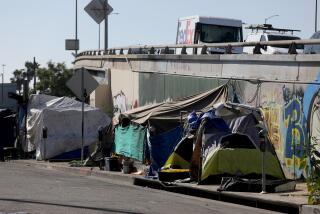Solving Problems Outside the Law
Law is not the only answer.
It is not even always an answer.
It is not a panacea.
It will not solve all your problems.
And even if it does offer a solution, it might take a long time.
We needed to say that because it is clear from the letters we get from readers that many people turn to lawyers with unreasonable expectations for solutions to their problems. Human problems.
There are letters from grandparents who donât get to see their grandchildren as much as they would like. There are letters from men who donât like paying child support, but their underlying problem is that they are really irritated by actions taken by their ex-spouse.
And we are not the only lawyers who get requests like this. The Los Angeles County Barâs lawyer referral service is set up to refer individuals to lawyers in specific fields, but the majority of the thousands of calls they receive each year are ones that are not referred to lawyers. Instead, callers are referred to government offices, social service providers, or other consumer groups.
Legal remedies are established through statues and court decisions, but there are many human problems where the remedies are outside the scope of the courts, even though the problems may have some relation to law. Those extra-legal remedies are not published in court cases, there are not recorded precedents available for research, and they are hard to find.
And there are some disputes that should be outside the scope of the courtroom, disagreements that could more easily be resolved by neighborly discussions or group consensus.
That was the point a California court made in a recent, highly publicized case about two neighbors, both lawyers, in Encino who are litigating about noise from a basketball game in oneâs back yard. âWhat is involved here is simply spiteful conduct . . . (there) has not been an attempt to find a basis for neighborly accommodation. . . . What we have (are) lawyers utilizing their own unlimited resources to accelerate petty neighborhood squabbles into a community war,â noted the court.
But without a legal remedy, how do grandparents who are denied the chance to visit their grandchildren get the opportunity to do so? There are doubtless many ways to accomplish this goal outside the courtroom. How about a family vacation, paid for by the grandparent? Or maybe just saying âIâm sorryâ will work.
Tenants often have problems related to the apartment or house they rent, but many of those problems canât be solved by litigation or lawyers. There are many tenant organizations that help educate or bring parties together to reach consensus. Just finding other people who share your problem is often a first step in determining what can be done to solve it.
Such groups develop practical hints and solutions that lawyers may never think of. Bankruptcy lawyers know how to handle matters in bankruptcy court, but those clients who have experienced that court process may have other practical problems. You could form an organization, call it âInsolvents Anonymousâ and it would no doubt be the depository of great practical insight.
Lawyers are often sought out as a last resort, but there may be better places to go. The challenge is finding them.


